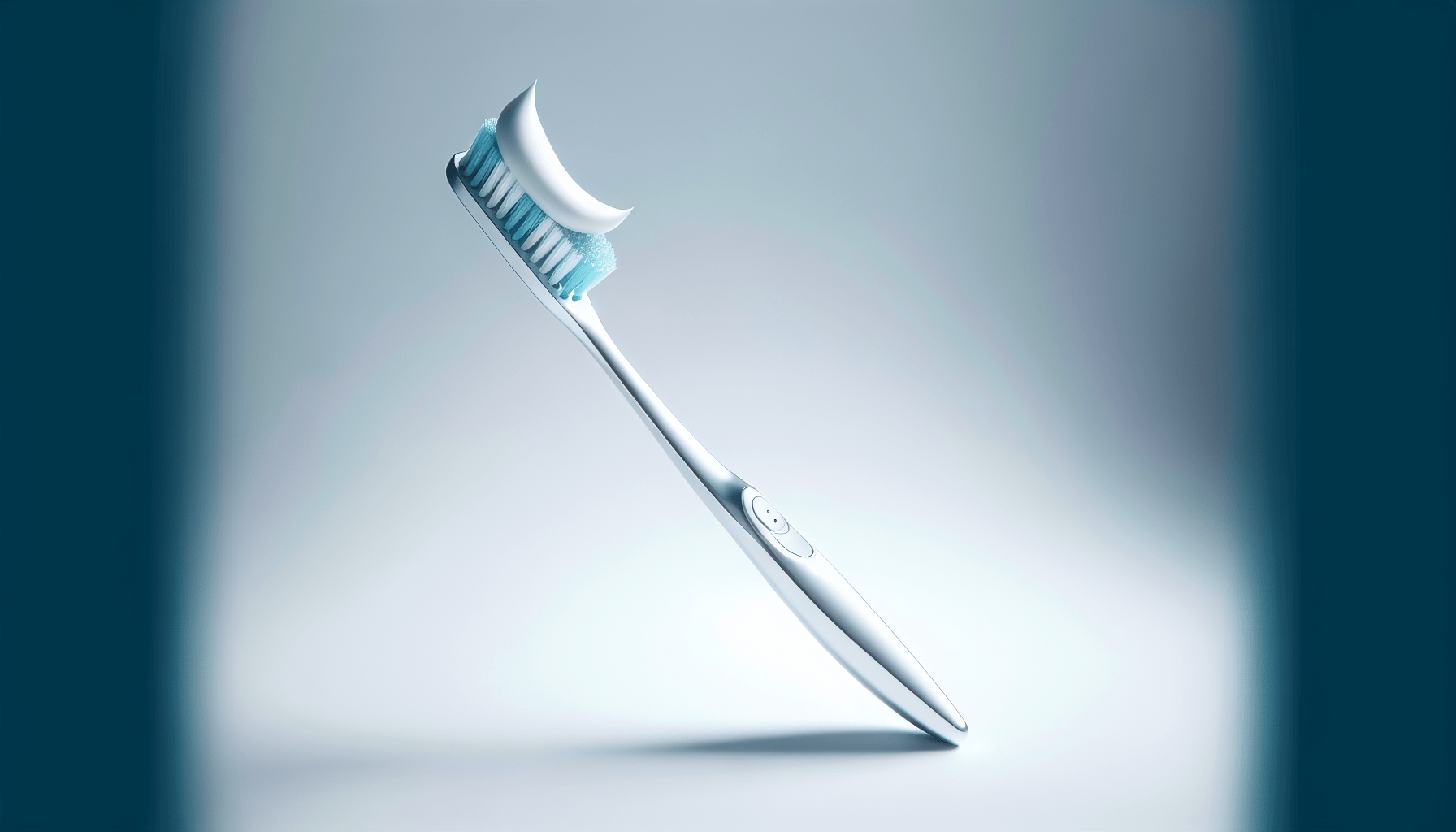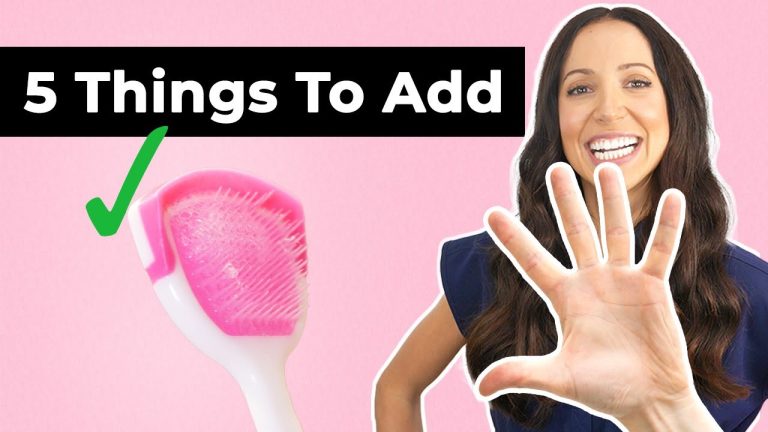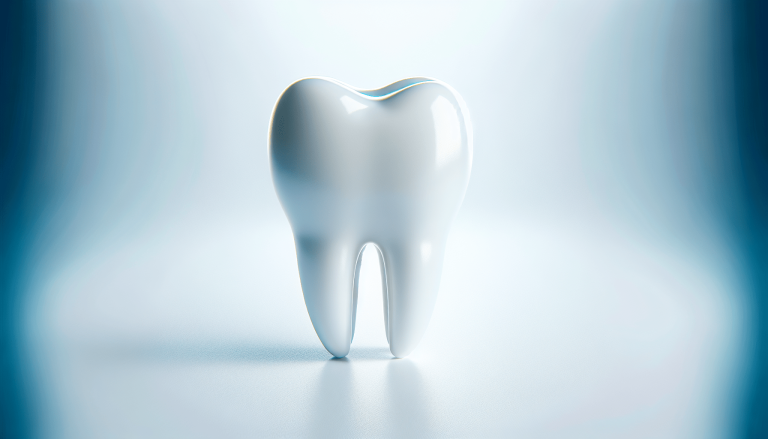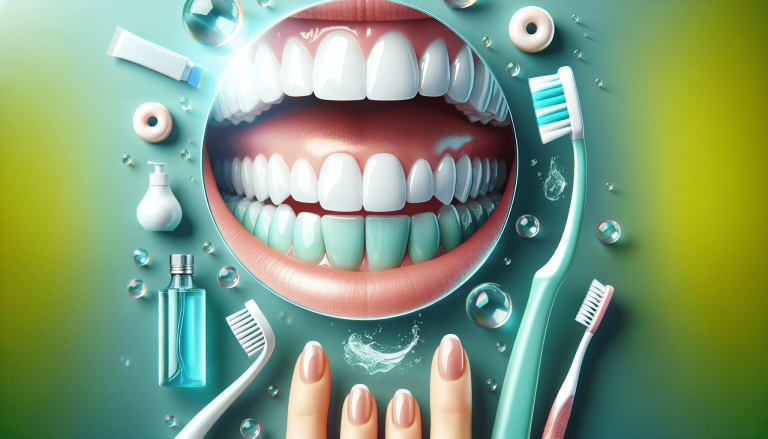How Can I Take Good Care Of My Teeth?
Taking good care of your teeth is essential for your overall health and a bright, confident smile. In “How Can I Take Good Care Of My Teeth?”, you’ll find practical tips and easy-to-follow advice to keep your teeth in tip-top shape. From daily brushing and flossing techniques to wise dietary choices and regular dental check-ups, this article covers everything you need to maintain excellent oral hygiene. Whether you’re a dental care novice or looking to refine your routine, these insights will help you achieve healthy teeth and gums for years to come. How Can I Take Good Care Of My Teeth?
Ever found yourself wondering, “How can I take good care of my teeth?” You’re not alone! Caring for your teeth is one of those essential parts of life that often gets overlooked. Good dental hygiene isn’t just about a bright smile—it’s about maintaining overall health, too. But where do you start?

Understanding Dental Health
Before diving into the nitty-gritty of tooth care, it’s important to understand why dental health matters and what it involves.
Why Dental Health is Important
Your mouth is a gateway to your body. Poor dental health can lead to a myriad of other health problems. Issues like gum disease can increase your risk for heart disease, diabetes, and even complications during pregnancy. Keeping your teeth and gums healthy isn’t just about having fresh breath—it’s about keeping your whole body in better shape.
What Makes Up Good Dental Health
Good dental health involves more than just preventing cavities. It includes having healthy gums, a clean tongue, and a mouth free from pain and infections. Let’s break down the main components:
- Healthy Teeth: Free from cavities and decay.
- Healthy Gums: Pink and firm, not swollen or bleeding.
- Fresh Breath: Free from persistent bad breath.
- Clean Tongue: Free from white or yellow coating.
Daily Habits for Excellent Dental Health
Now that you know why your dental health matters, let’s talk about the daily habits you need to cultivate for a glowing smile and a healthy mouth.
Brushing Your Teeth
Brushing your teeth is the cornerstone of good dental hygiene. However, it’s essential to do it correctly.
How to Brush
- Use the Right Brush: Opt for a soft-bristled toothbrush—this will help avoid damaging your gums.
- Proper Technique: Hold your toothbrush at a 45-degree angle to your gums. Gently move the brush back and forth in short (tooth-wide) strokes.
- Brush for Two Minutes: Make sure you’re spending enough time to cover all surfaces—inside, outside, and chewing surfaces of your teeth.
When to Brush
- Morning Routine: Brush after breakfast to clean away any food particles.
- Before Bedtime: Brush before bed to get rid of the day’s build-up and food particles.
Flossing Your Teeth
Many people skip flossing, but it’s a crucial part of dental care.
How to Floss
- Choose Your Floss: Whether you use waxed, unwaxed, or dental tape, the type doesn’t matter as much as doing it correctly.
- Proper Technique: Use about 18 inches of floss, winding most of it around each middle finger, leaving about an inch to work with. Gently slide it between teeth, curving it around each tooth and gently under the gumline.
When to Floss
- Once a Day: It’s usually best to floss before bedtime to remove the debris and plaque that has built up over the day.
Using Mouthwash
Mouthwash can add an extra level of cleanliness to your routine.
How to Use Mouthwash
- Choose the Right Type: There are mouthwashes for various needs—antiseptic mouthwash for killing bacteria, fluoride mouthwash for strengthening teeth, etc.
- Proper Technique: Pour the recommended amount, swish it around your mouth for about 30 seconds, and then spit it out. Don’t eat or rinse afterward to ensure the mouthwash continues working.
When to Use
- After Brushing and Flossing: This will help ensure you are getting the maximum benefits.
Diet and Dental Health
You are what you eat, and the same goes for your teeth. Your diet significantly impacts your dental health.
Foods to Avoid
Some foods and drinks are notorious for causing dental problems.
| Foods/Drinks to Avoid | Reason |
|---|---|
| Sugary Foods | High sugar levels can lead to cavities. |
| Acidic Foods | Can erode the enamel on your teeth. |
| Sticky Foods | Tend to stay on your teeth longer, causing plaque build-up. |
| Carbonated Drinks | Acidic and sugary, these can damage your enamel. |
| Alcohol | Can dry out your mouth, reducing saliva and increasing tooth decay risk. |
Foods to Embrace
Just as some foods can harm your teeth, others can help strengthen them.
| Foods to Embrace | Benefit |
|---|---|
| Dairy Products | High in calcium, strengthens teeth |
| Leafy Greens | High in vitamins and minerals, promote gum health |
| Apples and Carrots | Natural scrubbing effect, stimulate saliva production |
| Nuts and Seeds | Contain beneficial fats and minerals |
| Water | Helps rinse away food particles and bacteria |
Special Diet Considerations
If you follow a vegetarian or vegan diet, make sure you’re consuming enough calcium and Vitamin D—essential nutrients for strong teeth.
Regular Dental Check-Ups
Even with the best at-home care, regular check-ups are essential.
How Often Should You Go?
- Routine Visits: Every six months is the standard recommendation.
- Special Circumstances: If you have gum disease or other dental issues, your dentist may recommend more frequent visits.
What Happens During a Visit
During a dental check-up, your dentist will:
- Examine Your Mouth: Checking for cavities, gum disease, and other oral health issues.
- Professional Cleaning: Removing plaque and tartar that you can’t remove at home.
- X-rays: Sometimes, to check for issues below the gums or inside the teeth.
- Advice: Recommendations for improving your routine or addressing any issues.
Finding the Right Dentist
Choosing a dentist you trust and feel comfortable with is crucial. Ask for recommendations from friends, read online reviews, and consider visiting the office beforehand to see if the environment feels right for you.

Specialized Care
Sometimes, you might need specialized dental care beyond routine visits.
Orthodontics
Orthodontic treatments align and straighten teeth.
Common Treatments
- Braces: Traditional metal braces or the more modern clear aligners like Invisalign.
- Retainers: Used post-braces to maintain the alignment of your teeth.
When to Consider Orthodontics
- Misaligned Teeth
- Overbite/Underbite
- Crowded Teeth
Consult with an orthodontist to understand your options and the benefits of different treatments.
Cosmetic Dentistry
If you’re looking to enhance your smile’s appearance, cosmetic dentistry is for you.
Common Procedures
- Teeth Whitening: Professional bleaching for a brighter smile.
- Veneers: Thin coverings placed over the front part of the tooth.
- Bonding: Repairing damaged or decayed teeth with composite resin.
Periodontal Treatments
If you have gum disease, you may need more intensive care.
Common Treatments
- Scaling and Root Planing: Deep cleaning procedures to treat gum disease.
- Gum Surgery: For advanced gum disease or to correct gum recession.
Consult with a periodontist if you have symptoms like swollen, bleeding, or receding gums.
Common Dental Issues and Solutions
Even with the best care, you may face some dental issues. Here’s how to tackle them.
Cavities
What are Cavities?
- Small holes in your teeth caused by decay.
How to Prevent Cavities?
- Brush and floss regularly.
- Use fluoride toothpaste.
- Limit sugary foods and drinks.
Treatment Options
- Fillings: Most common treatment.
- Crowns: For more severe decay.
- Root Canals: If decay reaches the tooth’s pulp.
Gum Disease
What is Gum Disease?
- Infection of the gums around your teeth.
How to Prevent Gum Disease?
- Maintain a rigorous oral hygiene routine.
- Regular dental check-ups.
- Quit smoking.
Treatment Options
- Scaling and Root Planing: Deep cleaning to remove plaque and tartar.
- Medications: Antibiotic mouthwashes or gels.
- Surgery: In severe cases, surgical intervention may be necessary.
Tooth Sensitivity
What Causes Tooth Sensitivity?
- Weak enamel, gum recession, or exposed tooth roots.
How to Prevent Tooth Sensitivity?
- Use toothpaste for sensitive teeth.
- Avoid acidic foods and drinks.
- Brush gently with a soft-bristled brush.
Treatment Options
- Desensitizing Toothpaste: Helps block pain.
- Fluoride Gel: Strengthens enamel.
- Dental Procedures: Such as bonding or a gum graft to cover exposed areas.
Bad Breath
What Causes Bad Breath?
- Poor oral hygiene, certain foods, tobacco use, or underlying health issues.
How to Prevent Bad Breath?
- Brush and floss daily.
- Clean your tongue.
- Stay hydrated.
Treatment Options
- Anti-Bacterial Mouthwash: Reduces bacteria.
- Dental Check-Up: To identify any underlying issues.
Dry Mouth
What Causes Dry Mouth?
- Medications, medical conditions, or dehydration.
How to Prevent Dry Mouth?
- Drink plenty of water.
- Chew sugar-free gum.
- Avoid caffeine and alcohol.
Treatment Options
- Saliva Substitutes: Available over-the-counter.
- Medications: Your doctor may prescribe medication to stimulate saliva production.
Tools and Products for Better Dental Care
Using the right tools and products can make your dental care routine more effective.
Toothbrushes
Types of Toothbrushes
- Manual: The traditional option.
- Electric: Often more effective at removing plaque.
Features to Look For
- Soft bristles.
- Comfortable handle.
- Small head to reach all areas.
Toothpaste
Types of Toothpaste
- Fluoride: Essential for cavity prevention.
- Desensitizing: For sensitive teeth.
- Whitening: To remove surface stains.
- Anti-Gingivitis: Helps reduce inflammation and bleeding.
Floss and Alternatives
Types of Floss
- Waxed, unwaxed, dental tape—choose based on personal preference.
Alternatives
- Water Flossers: Use a jet of water to clean between teeth.
- Interdental Brushes: Tiny brushes that fit between your teeth.
Mouthwash
Types of Mouthwash
- Antiseptic: Kills bacteria.
- Fluoride: Strengthens enamel.
- Cosmetic: Freshens breath without treating underlying problems.
Children’s Dental Care
Teaching kids good dental habits early on sets the foundation for a lifetime of healthy teeth.
When to Start
Start cleaning your child’s mouth even before their first tooth appears by wiping the gums with a soft, damp cloth. Once teeth appear, switch to a soft-bristled baby toothbrush.
Fluoride for Kids
Fluoride is essential for children’s dental health, but you need to be careful about the amount.
Recommendations
- Use a smear of fluoride toothpaste for children under 3.
- Use a pea-sized amount for children aged 3-6.
Teaching Good Habits
- Lead by Example: Let your kids watch you brush and floss.
- Make it Fun: Use songs, games, and rewards to make dental care a fun activity.
- Regular Check-Ups: Start dental check-ups by their first birthday and continue regularly.
Dental Emergencies
From knocked-out teeth to toothaches, kids are prone to dental emergencies.
How to Handle Common Emergencies
| Emergency | What to Do |
|---|---|
| Knocked-Out Tooth | Rinse it gently, place it back if possible, and see a dentist immediately. |
| Toothache | Rinse with warm water, use a cold compress, and visit the dentist. |
| Broken Tooth | Rinse mouth with warm water, save the tooth fragment, and see a dentist. |
Taking Care of Braces and Other Dental Appliances
If you or your child have braces or other appliances, extra care is needed.
Brushing With Braces
- Use an Orthodontic Brush: Designed to clean around brackets and wires.
- Take Your Time: Pay extra attention to brushing around the brackets and wires to prevent plaque build-up.
Flossing With Braces
- Use a Floss Threader: Makes it easier to get the floss under the wires.
- Consider a Water Flosser: A more efficient way to clean between teeth and around braces.
Protecting Appliances
- Avoid Hard and Sticky Foods: These can damage braces or other appliances.
- Wear a Mouthguard for Sports: Protects your braces and teeth from injury.
The Role of Lifestyle in Dental Health
Your lifestyle choices can have a major impact on your dental health.
Smoking and Tobacco Use
Impact on Dental Health
- Increases the risk of gum disease.
- Delays healing after dental procedures.
- Stains teeth and causes bad breath.
How to Quit
- Speak to your doctor about cessation programs and medications.
- Consider joining a support group or using nicotine replacement therapies.
Stress and Dental Health
Impact on Dental Health
- Can lead to teeth grinding (bruxism).
- May increase the risk of gum disease.
How to Manage Stress
- Practice relaxation techniques like meditation and deep breathing.
- Exercise regularly.
Alcohol and Dental Health
Impact on Dental Health
- Can lead to dry mouth.
- Increases the risk of oral cancer.
Moderation is Key
- Stick to recommended guidelines for alcohol consumption.
- Rinse your mouth with water after drinking.
Eco-Friendly Dental Care Options
If you’re environmentally conscious, consider adopting more eco-friendly dental care practices.
Sustainable Products
- Bamboo Toothbrushes: Biodegradable and sustainable.
- Natural Toothpaste: Free from harmful chemicals and often comes in recyclable packaging.
- Eco-friendly Floss: Made from natural silk or biodegradable materials.
Reduce, Reuse, Recycle
- Recycle Dental Products: Many dental care items have recyclable components.
- Choose Reusable Products: Like water flossers instead of single-use floss picks.
Final Words
Taking good care of your teeth requires a little effort, but the results are worth it. By understanding why dental health matters, adopting daily habits, making informed dietary choices, and visiting your dentist regularly, you can maintain a healthy, beautiful smile for life. Remember, it’s never too late to start taking better care of your teeth. So, why not start today? Your mouth (and your whole body) will thank you!
By following these guidelines, you can enjoy the benefits of excellent dental health—because a healthy smile is a happy one!
Additional Resources
It’s sending shockwaves through the worldwide dental community…
A brand new, surprisingly simple and 100% natural method you can use at home…or on the go…to put an end to bleeding gums, bad breath, throbbing cavities, and loose teeth.
At the heart of this method lies a bizarre “sugar molecule” first discovered by German scientists. Recent groundbreaking studies show that this molecule targets and disrupts the most harmful type of oral microbe… Stopping it from releasing acids that eat away at teeth and spread decay and disease.
This oddly simple “sugar hack” holds the key to never getting another cavity… Giving you and your loved ones powerful protection against virtually every dental problem, including yellow, stained and decaying teeth, gingivitis, and tooth loss… While reversing gum disease and maintaining “strong as steel” teeth for years or decades to come.
Try this tonight and see for yourself: Odd “Sugar Hack” Fixes Bleeding Gums & Restores Your Smile In Just Seconds Per Day







